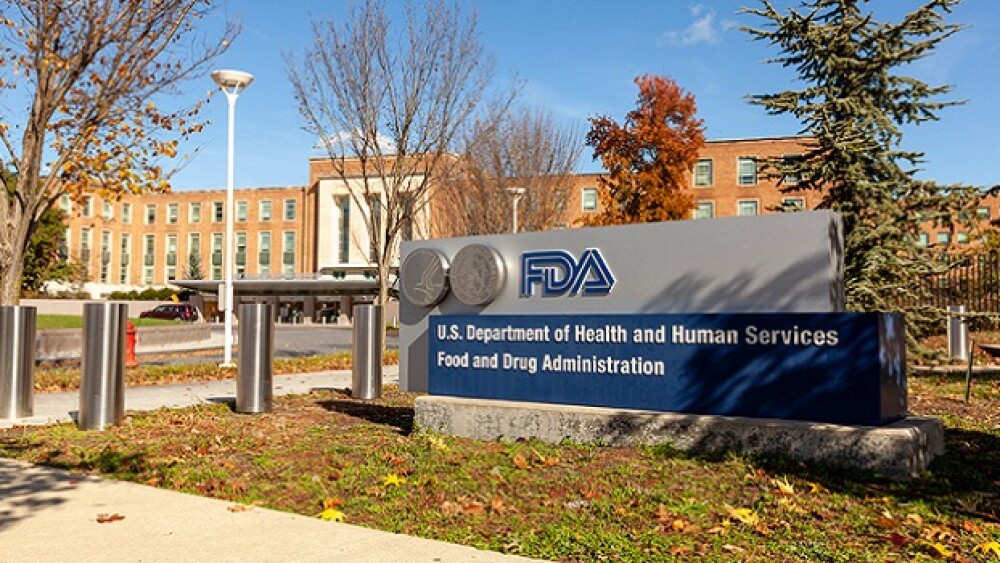Omisirge is approved for patients who receive cord blood transplantation following myeloablative therapy.
Pictured: Exterior view of the headquarters of the FDA/Grandbrothers/iStock
The FDA has approved Gamida Cell’s omidubicel-onlv, now to be marketed as Omisirge, in patients over 12 years of age with blood cancers, the company announced Monday.
Omisirge is indicated for patients scheduled to undergo umbilical cord blood transplantation after myeloablative conditioning treatments such as chemotherapy or radiotherapy. Its label bears a boxed warning for infusion reactions, graft-versus-host disease, engraftment syndrome and graft failure, all of which may be fatal.
Gamida shares traded 34% higher Monday afternoon following the news.
A single intravenous infusion of Omisirge contains human allogeneic stem cells taken from umbilical cord blood, according to the FDA’s announcement. The cells are processed using Gamida’s proprietary nicotinamide technology, which enriches the hematopoietic progenitor cells, preserves their stemness and promotes their migration to the bone marrow.
Typically, patients receiving stem cell transplantation for hematologic cancers need to undergo an aggressive regimen of chemotherapy or radiotherapy to remove existing stem cells. This makes the body more susceptible to severe, sometimes even fatal, infections.
Omisirge also facilitates the recovery of white blood cells, leading to an overall safer transplantation procedure.
“Hastening the return of the body’s white blood cells can reduce the possibility of serious or overwhelming infection associated with stem cell transplantation,” Peter Marks, director of the FDA’s Center for Biologics Evaluation and Research, said in a statement.
Gamida supported Omisirge’s regulatory bid with data from a global, randomized Phase III study, which showed that the cell therapy significantly speeds up neutrophil recovery after stem cell transplantation compared to standard cord blood.
In turn, Gamida’s cell therapy prevented grade 2/3 bacterial or grade 3 fungal infections, which arose in 39% of Omisirge-treated patients and 60% of control counterparts.
Prior to its approval on Monday, the FDA had previously granted Omisirge breakthrough, priority review and orphan drug designations. Gamida is currently seeking out strategic partnerships to support Omisirge’s launch and commercialization.
Omisirge’s Rough Regulatory Road
Gamida suffered several setbacks in its quest to get Omisirge approved.
In November 2021, the FDA requested additional information regarding Gamida’s manufacturing facility, seeking to confirm that the company’s sites could produce batches of the medicine comparable to the formulation used in the Phase III study.
This forced Gamida to push back its Biologics License Application submission to the first half of 2022. It had originally planned to file its BLA in 2021.
A few months later, in February 2022, Gamida kicked off a round of budget cuts that saw 10% of its workforce being let go.
In November 2022, a year after the initial delay, the FDA again pushed back Omisirge’s regulatory timeline after it requested additional laboratory data that the regulator deemed to be a major amendment to the BLA.
The delay triggered another round of layoffs at Gamida, which reduced its headcount by 17% in March 2023. As part of a strategic realignment initiative, the company also discontinued its preclinical engineered natural killer cell assets GDA-301, GDA-501 and GDA-601.
Tristan Manalac is an independent science writer based in metro Manila, Philippines. He can be reached at tristan@tristanmanalac.com or tristan.manalac@biospace.com






